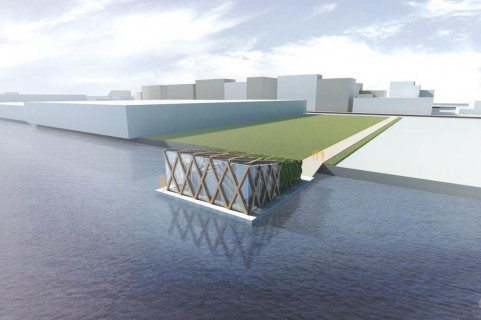Waternet will implement a neighbourhood bio refinery, a small scale treatment unit in which raw materials and energy can be recovered from black waste water.
City-zen was an international consortium, a program stimulating learning-by-doing in Grenoble and Amsterdam between March 2014 and November 2019. The results can be found in a booklet or in detailed reports. http://www.cityzen-smartcity.eu/home/reporting/deliverables/
What is the goal of the project?
City-zen partner Waternet, public water company for the Amsterdam region, is involved in the development of ‘Circular Buiksloterham’, a new residential area in the north of Amsterdam. For this purpose the water company is developing a so-called ‘New Sanitation’ system: a system in which waste water streams are separated at source (in households) and processed locally.
Waternet will implement a neighbourhood bio refinery, a small scale treatment unit in which raw materials (nutrients such as phosphate) and energy (biogas) can be recovered from black waste water (waste water coming from toilets and possibly food grinders). The black water is captured through a vacuum sewer system.
Currently the grey waste water stream (coming from showers, washing machines and the kitchen) will not be collected and treated locally yet but the Buiksloterham system has the potential to do so in a later stage. For now, it will still be collected via a traditional sewer system. A local grey water treatment unit would facilitate the recycling of water and heat.
What is the result of the project?
Waste water carries raw materials (like plant nutrients) and energy (heat and biogas). Most of these are lost in our current waste water systems. A good example is phosphate: it is essential to feeding the world, but its excessive use as a fertilizer has led to widespread pollution and eutrophication. A huge amount of phosphate is flushed out into the surface water by waste water treatment plants around the world. At the same time many of the world’s remaining phosphate reserves are starting to be depleted.
To recover minerals like phosphate we should change the way we handle our waste water, and treat it as a valuable resource. In practical terms this means that we should keep the different types of waste water separated to be able to recover energy and minerals efficiently.
Who initiated the project and which organizations are involved?





